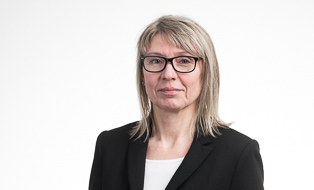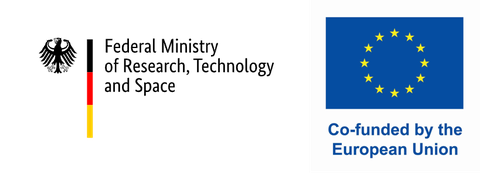ESF Plus program directive “Integration through Education” (IntBi)
The Federal Ministry of Research. Technology and Space published the funding directive for the ESF Plus program "Integration through Education” on April 28th, 2023.
The goal of the program is to improve access to education for people with a migration background. To this end, tandems of researchers and practitioners are created to promote the exchange of knowledge and facilitate the participation of girls and women with a migration background in education, as well as to improve the inclusive design of the educational system.
The following priorities take precedence:
- Funding initiative a):
Research and transfer on empowerment and participation in education for girls and women with a migration background - Funding initiative b):
Research and transfer to strengthen staff in the educational system in making their teaching more inclusive - Overarching project goal:
The consolidation of the program results and their inclusion in the scientific, practical and socio-political discourse (only one goal in this area)
Funding is to be provided primarily for implementing measures in the German education system. The projects can involve various fields of research and action, as well as local and regional stakeholders. In particular, access to education for girls and women with a migration background should be improved.
This can be achieved through:
- Measures that open up spaces for empowerment and enable experiences of self-efficacy (funding initiative a) or
- Training teaching staff to be more inclusive in their approach to teaching (funding initiative b)
- Both individual and collaborative projects can be funded.
- The project duration is initially limited to three years.
- The project should start on either May 1st or June 1st, 2024.
State and state-recognized universities, as well as non-university and/or private research institutions are eligible to apply.
In association with these, the following institutions can also be funded:
- Educational organizations and their financing bodies,
- foundations, migrant organizations, counseling institutions,
- municipal or regional education administration, as well as other organizations.
The prerequisite for these institutions receiving funding is that they are active in educating those with a migration background and that the scientific organization itself is responsible for project coordination.
Both individual and collaborative projects can be funded. In order to receive funding for a collaborative project, at least one of the cooperation partners must be a university, or a non-university research institution. This institution must be responsible for the coordination of the project. In addition, suitable cooperation partners working in the field must be involved.
The funding consists of a non-repayable grant as part of the available ESF Plus funds, and national co-financing by the BMBF.
The project duration is initially limited to three years. The project should start either on May 1st or June 1st, 2024.
The funding amount is based on the eligible project-related expenditure. 100 % of these potential expenses can be funded. For non-commercial research projects at universities and university hospitals, an additional lump sum of 20 % is granted.
There are no specifications regarding the expenditure amount. It is simply to be based on the project requirements.
The following expenses are eligible for funding:
- Personnel expenses for additional staff required for the project (also research and student assistants)
- Services provided by third parties/subcontracts (no contract allocation to project cooperation partners). These expenses must be significantly lower than planned internal expenses.
- Expenses for domestic travel
- Additional material resources (e.g. for open access publications such as abstracts and conference proceedings, for public/societal participation)
There is a two-stage application process. In the first stage, project outlines must be sub-mitted to the DLR Projektträger funding manager in electronic form using the easy-Online portal by August 27th, 2023 at the latest. They must be submitted in written form by September 1st, 2023 (date of postage stamp). The EPC deals with applications from TU Dresden. If the initial application is approved, applicants will be asked to submit a formal funding application for the second stage.
Contact at EPC:
 © TU Dresden
© TU Dresden
Project Manager
NameMs Ina Sedelies
ESF Plus, Federal ESF Plus, ERDF/JTF
Send encrypted email via the SecureMail portal (for TUD external users only).
Visiting address:
FAL Falkenbrunnen BT-A Würzburger Straße 35
01187 Dresden

Project Manager
NameMs Ines Synnatzschke
ESF, ERDF/JTF
Send encrypted email via the SecureMail portal (for TUD external users only).
Visiting address:
FAL Falkenbrunnen BT-A Würzburger Straße 35
01187 Dresden

